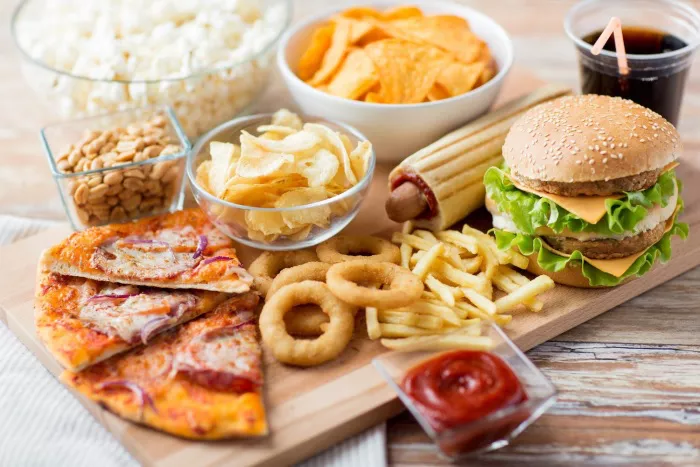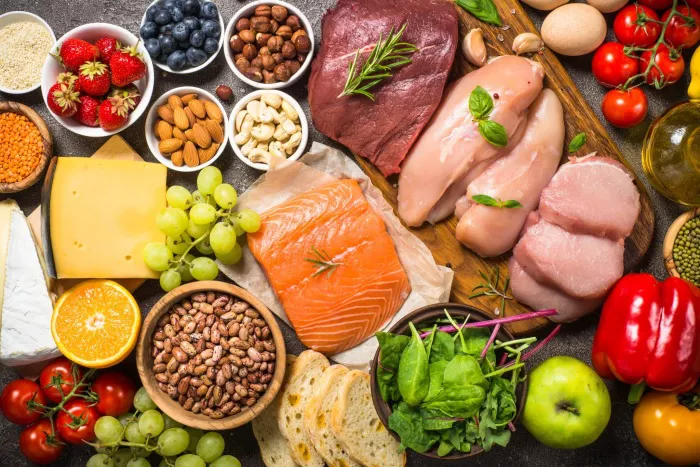Fatty foods have become an integral part of modern diets, contributing to a variety of health issues, including obesity, heart disease, and diabetes. While dietary fats are essential for our bodies to function correctly, it’s crucial to distinguish between healthy fats and the ones we should avoid. This article aims to shed light on the types of fatty foods to avoid, providing readers with valuable insights into making healthier food choices.
Understanding Fats
Before delving into the fatty foods to avoid, it’s essential to grasp the basics of dietary fats. Fats are one of the three primary macronutrients, alongside carbohydrates and proteins, and they serve multiple vital functions in our bodies. Fats provide a source of energy, help absorb fat-soluble vitamins (A, D, E, and K), and play a role in the structure of cell membranes.
However, not all fats are created equal. There are three main types of dietary fats:
Saturated Fats: These fats are commonly found in animal products like meat and dairy, as well as some plant oils. Consuming too many saturated fats can lead to elevated levels of LDL (low-density lipoprotein) cholesterol, which is associated with an increased risk of heart disease.
Trans Fats: Trans fats are artificially created fats through a process called hydrogenation, typically found in processed and fried foods. Trans fats are particularly harmful as they not only raise LDL cholesterol but also lower HDL (high-density lipoprotein) cholesterol, increasing the risk of heart disease.
Unsaturated Fats: These are the healthy fats, which can be further categorized into monounsaturated and polyunsaturated fats. Sources of unsaturated fats include olive oil, avocados, nuts, seeds, and fatty fish like salmon. These fats can help improve heart health by lowering LDL cholesterol levels.
Now that we have a better understanding of fats let’s explore the fatty foods that should be avoided for better health.
Fatty Foods to Avoid
Fried Foods
Fried foods are often synonymous with unhealthy eating, and for a good reason. They are typically prepared using trans fats, which are not only detrimental to heart health but can also contribute to obesity. French fries, fried chicken, and onion rings are popular examples of fried foods that are best avoided. These deep-fried delicacies not only contain unhealthy fats but are often calorie-dense, making portion control a challenging task.
Fast Food
Fast food establishments have become ubiquitous in modern society, offering quick and convenient meals. However, the majority of fast food items are high in saturated fats and trans fats, making them a significant contributor to poor dietary choices. Burgers, fries, chicken nuggets, and milkshakes are loaded with unhealthy fats that can lead to weight gain and a host of health problems.
Processed Meats
Processed meats such as sausages, bacon, and hot dogs are rich in saturated fats and often contain added preservatives and nitrates. These products are linked to an increased risk of heart disease and certain types of cancer. It’s wise to limit consumption of processed meats and opt for lean cuts of unprocessed meat or plant-based alternatives.
Butter and Lard
Butter and lard are solid fats that are high in saturated fats. While they may add flavor to dishes, they can have a detrimental impact on cardiovascular health. These fats are often used in baking and cooking, but it’s advisable to seek healthier alternatives like olive oil or avocado oil for cooking and spreading.
Full-Fat Dairy Products
While dairy products can be a part of a balanced diet, full-fat options like whole milk, cream, and regular cheese are high in saturated fats. Opting for low-fat or fat-free versions can provide the nutritional benefits of dairy without the excess unhealthy fats.
Margarine
Margarine, especially the older, partially hydrogenated versions, was once touted as a healthier alternative to butter. However, these margarines contain trans fats, which are now widely recognized as unhealthy. Many modern margarines have removed trans fats, but it’s essential to check the label to ensure you are choosing a trans fat-free product.
Commercial Baked Goods
Baked goods like cakes, cookies, and pastries from commercial bakeries often contain trans fats to extend shelf life and enhance texture. These tasty treats may be tempting, but they are a source of unhealthy fats and added sugars. Consider homemade, healthier versions of your favorite baked goods to control the ingredients.
Pre-Packaged Snacks
Snack foods like potato chips, microwave popcorn, and packaged pastries are frequently laden with trans fats, excessive sodium, and unhealthy additives. Opt for whole foods like fruits, vegetables, and nuts for healthier snack options.
Ice Cream
While ice cream is a beloved dessert, it is usually high in saturated fats and added sugars. Excessive consumption of ice cream can contribute to weight gain and metabolic issues. Enjoying it in moderation or exploring lower-fat and sugar-free options is advisable.
Coconut Oil
Coconut oil has gained popularity for its purported health benefits, but it is high in saturated fats. Using it in moderation and being mindful of its presence in processed foods is recommended.
Salad Dressings
Salad dressings, particularly creamy and commercially prepared options, can be surprisingly high in unhealthy fats. Read labels carefully and choose dressings made with olive oil or other unsaturated fats.
Commercial Pizza
The combination of processed meats, high-fat cheese, and a thick, greasy crust can make commercial pizza a significant source of unhealthy fats. Opt for homemade or healthier pizzeria options with whole-grain crust and plenty of vegetable toppings.
Canned Soups
Some canned soups contain a substantial amount of trans fats and sodium. To make healthier choices, consider making your soups from scratch or selecting low-sodium options with no trans fats.
Conclusion
Understanding which fatty foods to avoid is an essential step in promoting good health and preventing various chronic diseases. It’s crucial to differentiate between healthy and unhealthy fats and make informed dietary choices. While indulging in the occasional treat is acceptable, it’s best to prioritize whole, unprocessed foods and opt for cooking methods that use healthier fats.


























